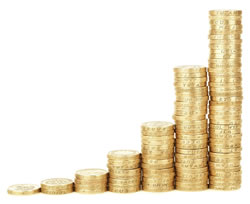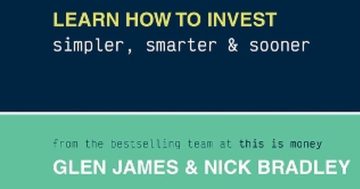Tina Roth* says there are five good personal finance habits you should adopt if you want to achieve financial success.
 Simple financial success is defined as the achievement of your personal finance goals.
Simple financial success is defined as the achievement of your personal finance goals.
There’s a reason they’re called ‘personal’ finance goals and that’s because they’re defined by you, not by society.
While one person might be thrilled to own a home, have $15,000 in the bank, and a good job, another might strive for financial independence at age 50.
Before you can take the steps to financial freedom, you must take a minute and figure out what financial success is for you.
Research shows that after you earn a certain amount of money, your happiness doesn’t increase much.
So, realistically, you can have financial success without a boatload of money.
In fact, financial success is more about these intangibles than it is a huge net worth:
Financial success means a secure tomorrow
Financial success means that you have enough money to cover your basic living expenses and a few extras for a satisfying life today and tomorrow.
After you craft your priorities and picture of financial success, you can learn how to be financially successful.
The steps to financial freedom are merely habits strung together over time that will lead to your goal.
Financial success means that you have the basic necessities – this includes a home, transportation, food and some extras.
Financial success doesn’t need to cost a lot.
Financial success also means you have time to do what matters.
No matter how much money you have, if you don’t have the time to enjoy life, you can’t really enjoy financial success.
To craft your financial success with sound habits, you need to set your personal financial goals.
Writing down your goals is the first step towards achieving them.
What are financial success habits?
We don’t make our habits – our habits make us.
Getting rid of habits is a Herculean task.
Habits to help you achieve financial success and ultimately financial freedom are no more difficult than habits that lead you down the path of ruin.
They’re simply a string of good money decisions added together and repeated.
You must strangulate the bad habits – the ones that make you spend extra – and replace them with good habits to help you obtain financial freedom.
- Earn more, spend less
There should be proportion.
If you are making $4,000 a month, don’t spend more than $2,000.
Your friends might call you stingy, but who cares?
There’s no relationship between earning more and spending more.
Earning money is a result of financial success, which requires hard work and diligence.
Spending extravagantly, on the other hand, shows a person with little control over their spending.
- Don’t wait to invest
Invest when you are young.
You have an entire life ahead of you.
Even if you fail, you can still get up and invest again.
In the strong likelihood that you will succeed, you won’t have to look back.
Although investment involves risk, not investing when you’re young is riskier.
Losing those early years, in which your money has the time to grow and compound, is the riskiest path of all.
The younger you are, the more time your money has, to make up any early losses.
Investors who’ve stayed in the market through ups and downs and not pulled their money out haven’t lost investment dollars during any 20-year period.
As you age, you have growing financial obligations.
Getting started early gets you in the habit of putting yourself and your financial future first.
By starting earlier, you can invest less to build significant wealth.
- Love your job
When passion and profession go hand in hand, attaining success becomes easy.
Loving your job may not be easy for you but when you love doing what you are doing, you step on to the first stair of financial success.
- Budget and manage money right
Saving money is the prerequisite to financial success.
True, a few lucky people realise overnight success, but the percentage of such people is so small they need not be considered.
An average person cannot be financially free if they don’t make a budget.
Budgeting is especially important when you are in your 30’s and 40’s.
If you start stashing money away earlier, you’ll need fewer actual dollars to realise your retirement dreams.
Unless there’s a system preventing the cash outflow, your financial situation can never be better.
Budgeting is a part of money management.
To turn money management into a habit, track all your spending.
- Avoid borrowing money
Sometimes, debt is unavoidable.
A student loan qualifies as the type of debt that may be necessary.
In many cases, if you don’t take out a student loan, you won’t be able to continue your studies.
But not all debts are like this.
Credit card debts are almost always unnecessary.
There’s a remedy that you can follow to stop credit card debt: spend only 10 per cent of the credit limit.
If your credit limit is $5,000, don’t spend more than $500.
Make this a habit.
It might be difficult if you are a shopaholic but, with time, you’ll get accustomed to it.
And pay off your credit card bill in full every month!
If you can’t afford to pay for something then, in most cases, you don’t really need it.
If you have an auto loan, pay it down as quickly as possible.
If you haven’t started paying off your debts – now is the time to begin.
Practise these money habits to attain financial success.
* Tina Roth writes the Pro Finance Blog at profinanceblog.com.
This article first appeared at barbarafriedbergpersonalfinance.com











